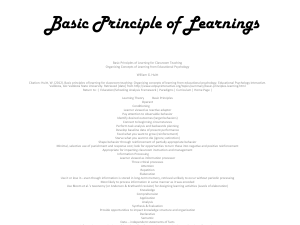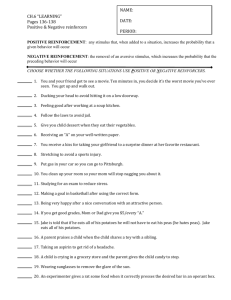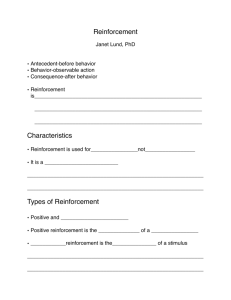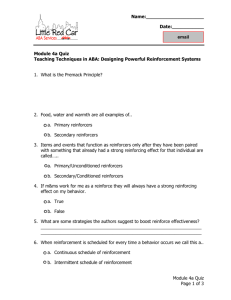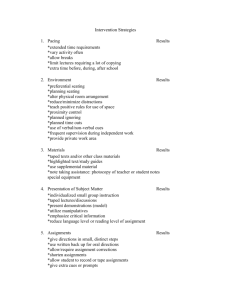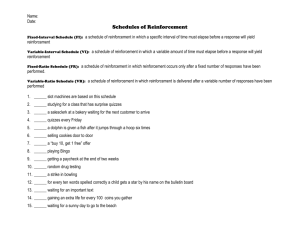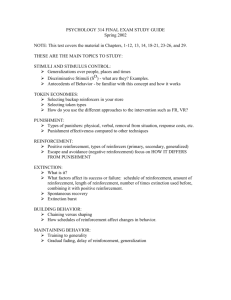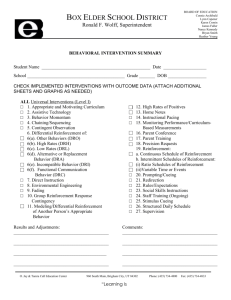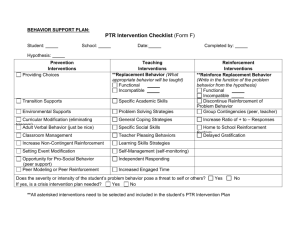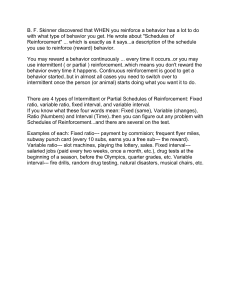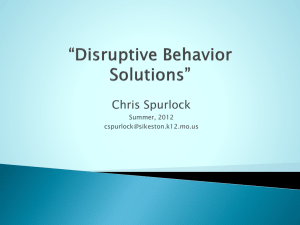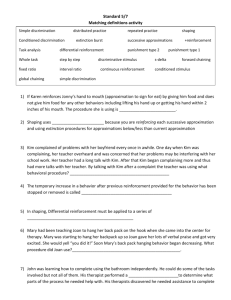Learning Theories Power Point
advertisement
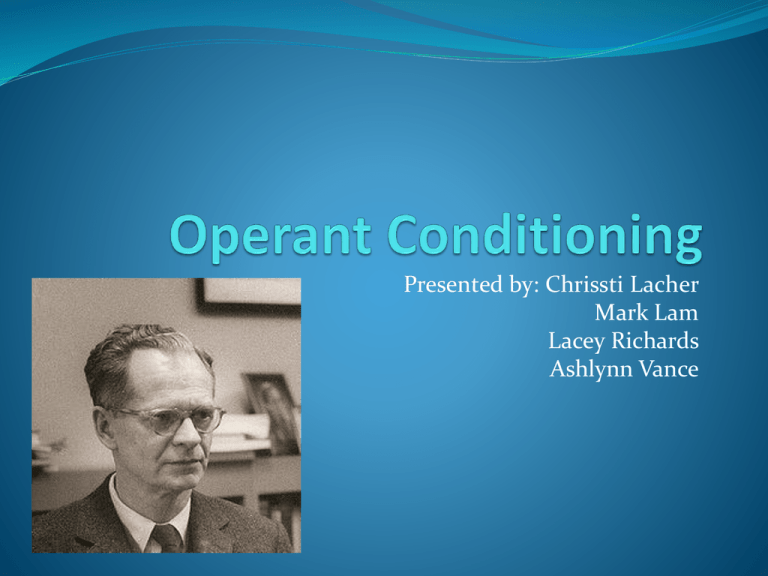
Presented by: Chrissti Lacher Mark Lam Lacey Richards Ashlynn Vance B.F. Skinner – A History Believed that learning is a function of change in overt behavior, and that behavior could be shaped gradually. Also believed that changes in behavior are the result of an individual’s response to events that occur in the environment. Behaviorist and a Social Philosopher. Moonlights as a Poet/Author/Inventor. Definition: A method of learning that occurs through rewards and punishments for behavior. Associations are made between a behavior and a consequence for that behavior. All about stimulus response. Underlying Theories: Reinforcement (either positive or negative) is key to this theory. Reinforcement – Anything that strengthens a desired response. Primary Reinforcers – Natural reinforcers; things that affect behavior without having to learn anything. Secondary Reinforcers – social forms of reinforcement. Key Components to OC 1) Positive Reinforcement 2) Negative Reinforcement 3) Punishment 4) Extinction Positive Reinforcement • In a nutshell, if you are presented with something desirable the positive behavior will continue. • > + + Recent studies have found that this type of reinforcement is the most powerful. Ex. Training a Dog Negative Reinforcement < - + Remove the negative variable from a situation and you will likely see an increase in the desired behavior. Ex. Nagging More examples of Reinforcement Fixed interval schedule – reinforcement schedule in which desired behavior is rewarded following a constant amount of time. Example - This is best for a classroom. Assign short quizzes rather than infrequent major exams - this encourages them to give their best efforts all of the time instead of pulling all nighters. Punishments > - Presenting a subject with a negative action in order to decrease a response/behavior. Ex. Rebel Child Extinction < + Removing a stimulus completely in order to eliminate a specific behavior. Ex. Candy, Starbucks, The Biggest Loser Works Cited Heffner, Christopher. "All Psych Online." Learning Theory and Behavioral Psychology . N.p., 01 04 2001. Web. 24 Feb 2011. <http://allpsych.com/psychology101/learning.html>. Huitt, W., & Hummel, J. (1997). An introduction to operant (instrumental) conditioning. Educational Psychology Interactive. Valdosta, GA: Valdosta State University. Retrieved [21 Feb 2011] from, http://www.edpsycinteractive.org/topics/behsys/ operant.html Slavin, Robert. (2009). Educational Psychology Theory and Practice. New York: Allyn & Bacon.
